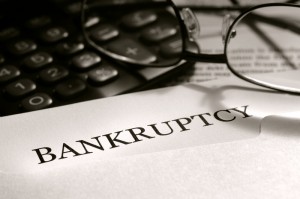 A bankruptcy discharge permanently releases the debtor from liability for many types of debts. This means that the creditor may no longer take steps to collect the discharged debt from the debtor after the discharge order is signed. The discharge affects personal liability for debts but it does not affect liens. As a result, secured lenders may be able to enforce a lien and recover secured property, but if there is a deficiency left after the collateral is sold and proceeds applied to the claim, the creditor cannot collect the deficiency from the debtor.
A bankruptcy discharge permanently releases the debtor from liability for many types of debts. This means that the creditor may no longer take steps to collect the discharged debt from the debtor after the discharge order is signed. The discharge affects personal liability for debts but it does not affect liens. As a result, secured lenders may be able to enforce a lien and recover secured property, but if there is a deficiency left after the collateral is sold and proceeds applied to the claim, the creditor cannot collect the deficiency from the debtor.
The discharge is usually granted at the end of the bankruptcy case. In Chapter 7 cases the discharge order is signed approximately sixty days after the 341 meeting, unless a creditor objects to discharge. In Chapter 13 cases the discharge order is signed after the Chapter 13 plan is completed. In most cases the plan is completed after three to five years. However, the debtor may be prevented from getting a discharge if they haven’t met the other requirements under The Bankruptcy Code and the local rules of court. For example, the debtor must successfully complete a financial management course prior to receiving a discharge.
Not all debts can be discharged in bankrupctcy. The most common exceptions to discharge include student loans, child support, criminal fines, and income tax. However, in some cases even student loans and income taxes can be discharged in bankruptcy. The rules regarding when these two types of debts can be discharged are complicated and vary depending on where the case is filed. Debts that were incurred by fraud may also be excepted from discharge. There are 19 different types of debts that cannot be discharged in bankruptcy cases. These are located in The Bankruptcy Code at 11 U.S.C. § 523(a).
Debtors are limited in how often they can receive discharges in bankruptcy. The time period that must pass between discharges is between two and eight years. The time limitation between successive discharges depends on what bankruptcy chapter was filed in the first case and what bankruptcy chapter is being filed in the second case.
Disclaimer: I am a bankruptcy attorney practicing law in north Texas. I represent clients from Plano, McKinney, Allen, Wylie, Sachse, and other nearby Texas communities in Chapter 13 cases. The information contained in this web site applies to bankruptcy law in the Eastern District and Northern District of Texas. For information about what debts are affected by the discharge order contact a local bankruptcy lawyer.